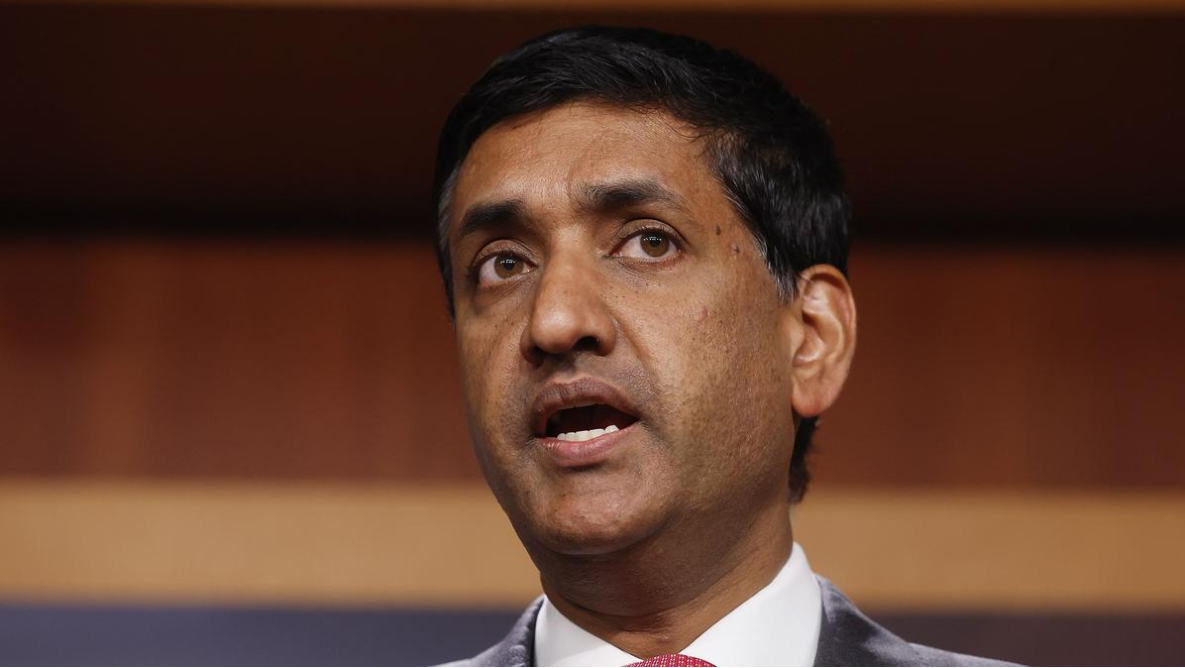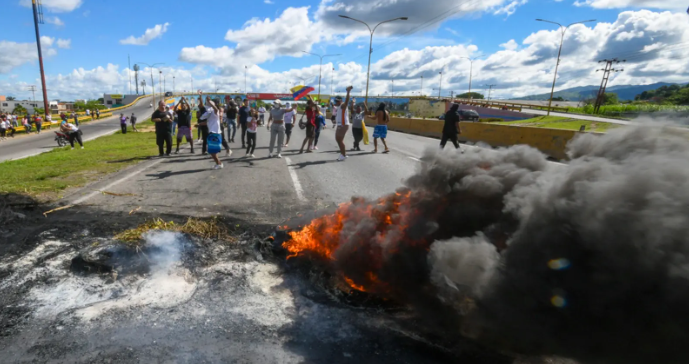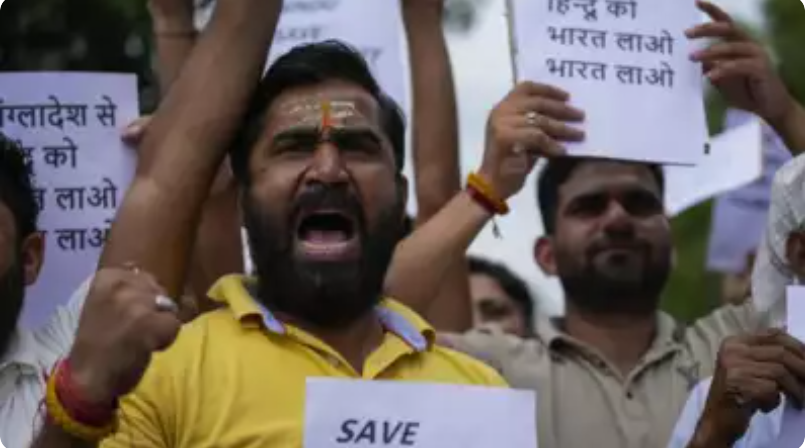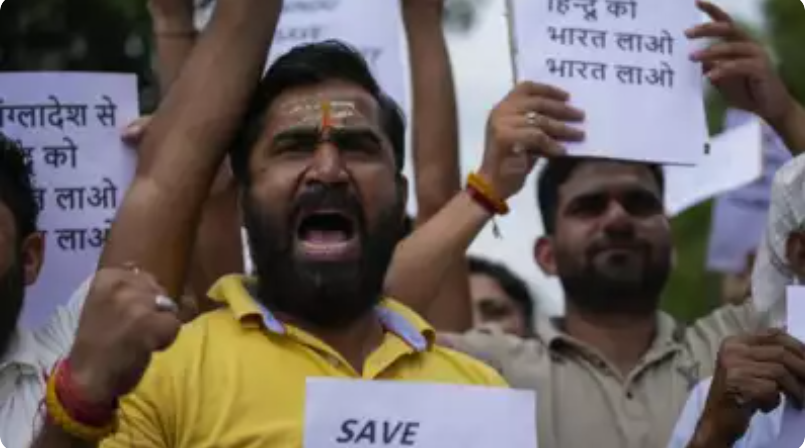Venezuela Charges Four Journalists with ‘Terrorism:-
In a stark reflection of the deteriorating state of press freedom in Venezuela Charges, four journalists have been charged with terrorism by the government of President Nicolás Maduro. This unprecedented move has drawn widespread condemnation from both domestic and international observers, who view it as a severe escalation in the government’s ongoing crackdown on dissent and independent media.
The Venezuela Chargess have been denounced by the Venezuelan Press Union, which has labeled them as an attack on press freedom and a blatant attempt to silence critical voices. The situation has raised serious concerns about the safety of journalists in Venezuela and the future of free expression in a country where the media has long been under siege.
This article explores the details of the charges against the Venezuela Charges journalists, the reaction from press freedom advocates, the historical context of media repression in Venezuela, and the potential consequences for both the journalists involved and the broader media landscape in the country.  for more information click on this link
for more information click on this link
The Charges: A Closer Look
1. Details of the Accusations
The Venezuela Charges four journalists, whose names have been withheld for their safety, were arrested in late July 2024 during a series of raids conducted by Venezuela’s intelligence services. According to government sources, the journalists are accused of participating in a “conspiracy to destabilize the state” through their reporting and investigative activities. The charges include allegations of incitement to violence, dissemination of false information, and collaboration with foreign entities—claims that the government has used in the past to discredit its critics.
The most serious charge, however, is that of terrorism, which carries severe penalties under Venezuelan law, including long prison sentences. The government has provided little evidence to substantiate these charges, leading to widespread speculation that the accusations are politically motivated and intended to send a chilling message to other journalists in the country.
2. The Journalists’ Work and Previous Investigations
The charged journalists are known for their investigative work, often focusing on corruption, human rights abuses, and the deteriorating economic situation in Venezuela. Their reporting has been critical of the Maduro government, highlighting issues such as the mismanagement of public funds, the collapse of essential services, and the widespread human suffering caused by the country’s ongoing economic crisis.
In the months leading up to their arrest, these journalists had published several high-profile reports that embarrassed the government, including exposes on the involvement of senior officials in illegal activities. It is widely believed that their work is the real reason behind the charges, as the government seeks to stifle independent journalism that challenges its narrative.
Press Union and International Response
1. Venezuelan Press Union’s Condemnation
The Venezuela Charges Press Union, the country’s leading organization for journalists, has been at the forefront of the campaign to defend the accused journalists. In a strongly worded statement, the union condemned the charges as “an outrageous attack on the fundamental rights of free expression and journalism.” The union argued that the government’s actions are part of a broader strategy to intimidate the press and prevent the public from receiving accurate information about the situation in the country.
The union has called for the immediate release of the journalists and has demanded that the charges be dropped. It has also appealed to international organizations, including the United Nations and the Inter-American Commission on Human Rights, to intervene and pressure the Venezuelan government to respect press freedom.  for more information click on this link
for more information click on this link
2. Reactions from International Organizations
The international community has reacted with alarm to the charges against the Venezuelan journalists. Press freedom organizations such as Reporters Without Borders (RSF) and the Committee to Protect Journalists (CPJ) have issued statements condemning the arrests and calling for the journalists’ immediate release. RSF described the charges as “a dangerous escalation in the Maduro regime’s war on the press,” while CPJ warned that the situation in Venezuela is rapidly becoming one of the most repressive environments for journalists in the world.
Human rights organizations, including Amnesty International and Human Rights Watch, have also expressed concern over the charges, highlighting the broader context of repression and human rights abuses in Venezuela. These organizations have pointed out that the charges are part of a systematic campaign by the government to silence dissent and suppress independent media, a campaign that has intensified in recent years as the country’s political and economic crisis deepens.
3. Statements from Foreign Governments
Several foreign governments, particularly those in the Western Hemisphere, have also condemned the charges against the Venezuelan journalists. The United States, Canada, and several European Union member states have issued statements expressing concern over the situation and calling for the protection of press freedom in Venezuela. The U.S. State Department, in particular, has been vocal in its criticism, labeling the charges as “baseless” and “a clear attempt to stifle independent journalism.”
These governments have also called for increased international pressure on the Maduro regime, including the possibility of further sanctions targeted at individuals responsible for human rights abuses and attacks on press freedom. However, the effectiveness of such measures remains a matter of debate, given the entrenched nature of the Maduro government and its resilience in the face of international isolation.
Historical Context: Media Repression in Venezuela
1. A Legacy of Suppression
The recent Venezuela Charges against the journalists are part of a broader pattern of media repression that has characterized the Maduro government and its predecessor, the administration of Hugo Chávez. Since Chávez came to power in 1999, the Venezuelan government has systematically targeted independent media outlets that criticize its policies or expose corruption and abuses.
Under Chávez and Maduro, the government has used a variety of tactics to control the media, including censorship, the forced closure of media outlets, the persecution ofa. journalists, and the creation of a network of state-controlled media to propagate government propaganda. Independent journalists have faced harassment, threats, and violence, often at the hands of government supporters or security forces.
The situation has worsened under Maduro, as the economic and political crisis in Venezuela has deepened. The government has increasingly resorted to repressive measures to maintain control, with journalists and media outlets bearing the brunt of these efforts. The charges of terrorism against the four journalists represent a new low in the government’s campaign against the press, signaling an alarming escalation in the tactics used to silence dissent.
2. Key Incidents of Media Crackdown
Over the past two decades, there have been several high-profile incidents of media repression in Venezuela. One of the most notorious was the shutdown of Radio Caracas Televisión (RCTV) in 2007, after the station refused to align itself with the Chávez government. RCTV, one of the country’s oldest and most popular television networks, had been critical of the government and was accused by Chávez of supporting the 2002 coup attempt against him.
In more recent years, independent newspapers and online media outlets have also been targeted. In 2017, the government blocked the websites of several news organizations, including El Nacional and La Patilla, which had published reports critical of Maduro. Journalists have been detained, beaten, and threatened with imprisonment, creating a climate of fear that has led many to flee the country or go into hiding.
The Implications for Press Freedom in Venezuela
1. A Chilling Effect on Journalism
The Venezuela Charges against the four journalists are likely to have a profound impact on the state of journalism in Venezuela. By equating critical reporting with terrorism, the government is sending a clear message that independent journalism will not be tolerated. This is likely to have a chilling effect on other journalists in the country, many of whom may self-censor or cease reporting on sensitive topics out of fear of similar repercussions.
The situation also raises serious concerns about the future of investigative journalism in Venezuela Charges With the government tightening its grip on the media and independent outlets struggling to survive, the space for in-depth, critical reporting is rapidly shrinking. This is particularly concerning given the severe economic and humanitarian crisis facing the country, which requires rigorous and independent scrutiny.
2. Erosion of Public Trust
The crackdown on the press also risks further eroding public trust in the government and its institutions. As independent media outlets are silenced, the public is increasingly reliant on state-controlled media, which often presents a distorted or incomplete picture of the situation in the country. This lack of reliable information undermines the ability of Venezuelans to make informed decisions and hold their government accountable.
In the long term, the suppression of the press could contribute to a broader breakdown of democratic norms and institutions in Venezuela. A free and independent press is a cornerstone of democracy, and its erosion is often a precursor to more authoritarian forms of governance. The charges against the journalists are a stark warning that Venezuela may be heading further down this path.  for more information click on this link
for more information click on this link
The Path Forward: Calls for Action
1. International Advocacy and Support
In the face of these challenges, international advocacy and support for press freedom in Venezuela are more critical than ever. Press freedom organizations, human rights groups, and foreign governments must continue to speak out against the repression of journalists and push for their protection. This includes providing legal and financial support to independent media outlets, advocating for the release of detained journalists, and pressing the Venezuelan government to uphold its commitments to human rights and free expression.
Diplomatic efforts should also be intensified, with the aim of holding the Maduro government accountable for its actions. This could involve targeted sanctions against individuals responsible for media repression, as well as efforts to isolate the government diplomatically and economically. However, these measures must be carefully calibrated to avoid exacerbating the suffering of the Venezuelan people, who are already facing immense hardships due to the country’s economic collapse.
2. Support for Independent Journalism
Supporting independent journalism in Venezuela Charges is essential for ensuring that the public has access to accurate and unbiased information. This can be achieved through a variety of means, including funding for independent media outlets, training and capacity-building programs for journalists, and the creation of safe spaces for journalists to continue their work.
International organizations and media networks can also play a role in amplifying the voices of Venezuelan journalists and ensuring that their work reaches a global audience. By shining a spotlight on the situation in Venezuela, the international community can help to protect journalists and hold the government accountable for its actions.
3. Domestic Resistance and Solidarity
Despite the challenges, there is still hope for press freedom in Venezuela. The courage and resilience of Venezuelan journalists, who continue to report on the situation in their country despite the risks, is a testament to the enduring power of independent journalism. By standing together and supporting one another, journalists in Venezuela can continue to resist government repression and ensure that the truth is told.
The Venezuelan Press Union and other civil society organizations will play a crucial role in this effort, providing legal and moral support to journalists and advocating for their rights. Public solidarity with the press, both in Venezuela and abroad, can also help to strengthen the resolve of those fighting for free expression in the country.
Conclusion
The charges of terrorism against four Venezuelan journalists mark a dangerous escalation in the government’s assault on press freedom. As the Maduro regime tightens its grip on power, the space for independent journalism is shrinking, with serious implications for democracy and human rights in the country. The international community must respond with urgency and resolve, supporting Venezuelan journalists and holding the government accountable for its actions. In doing so, we can help to protect press freedom in Venezuela and ensure that the voices of those who dare to speak truth to power are not silenced. ALSO READ:-U.S. Executes Second Prisoner in Days for Murder and Sexual Assault: A Comprehensive Analysis





